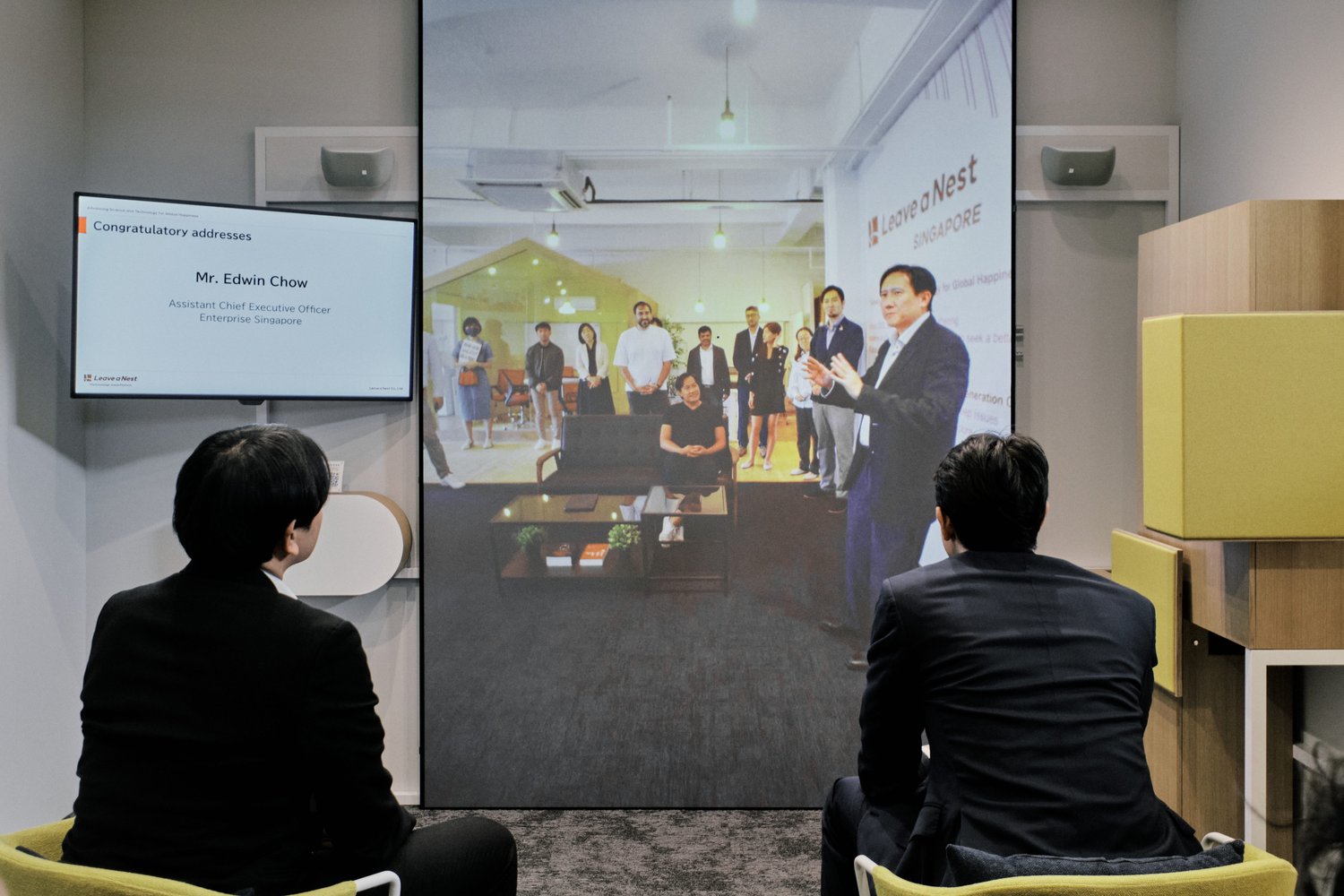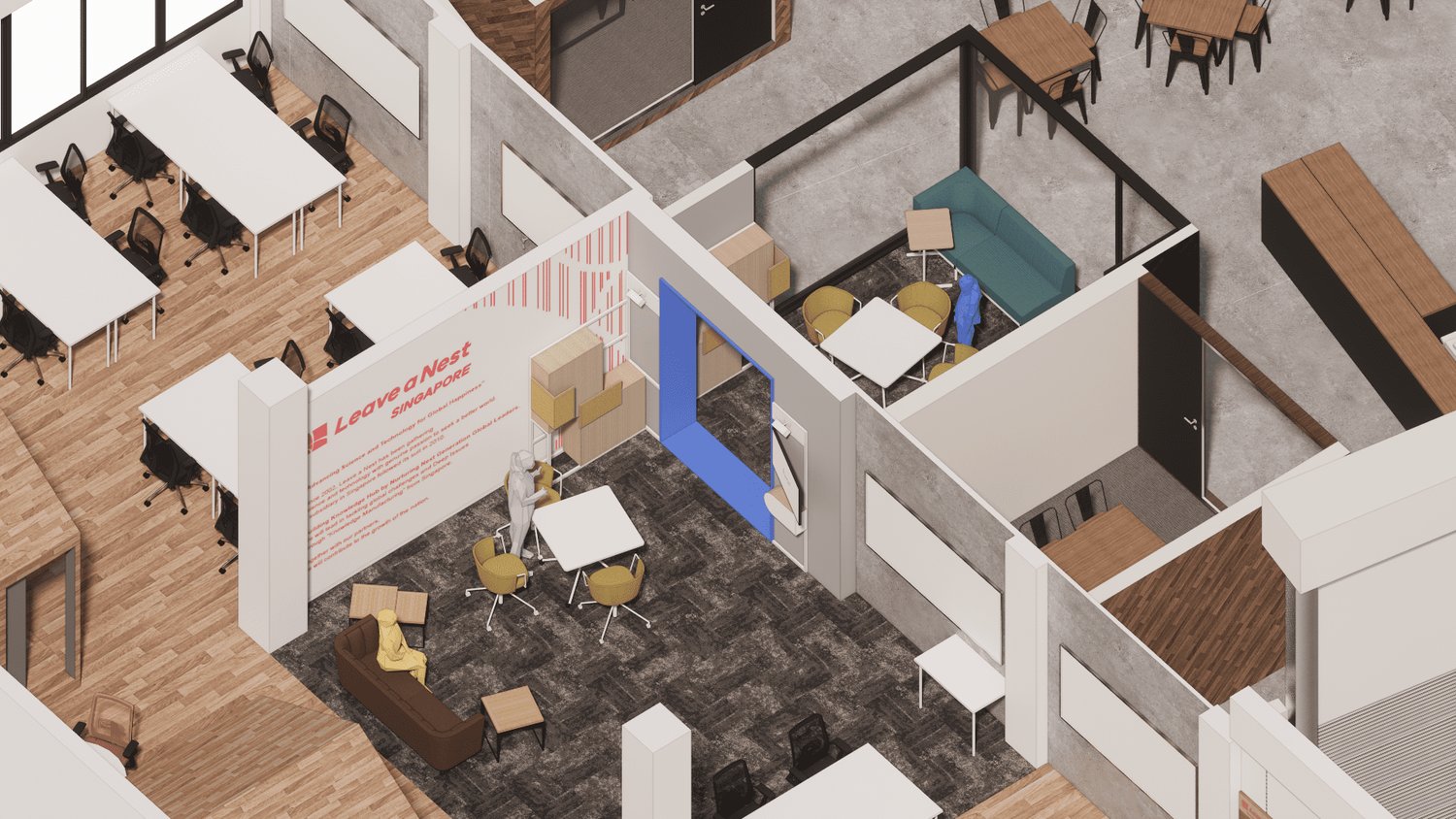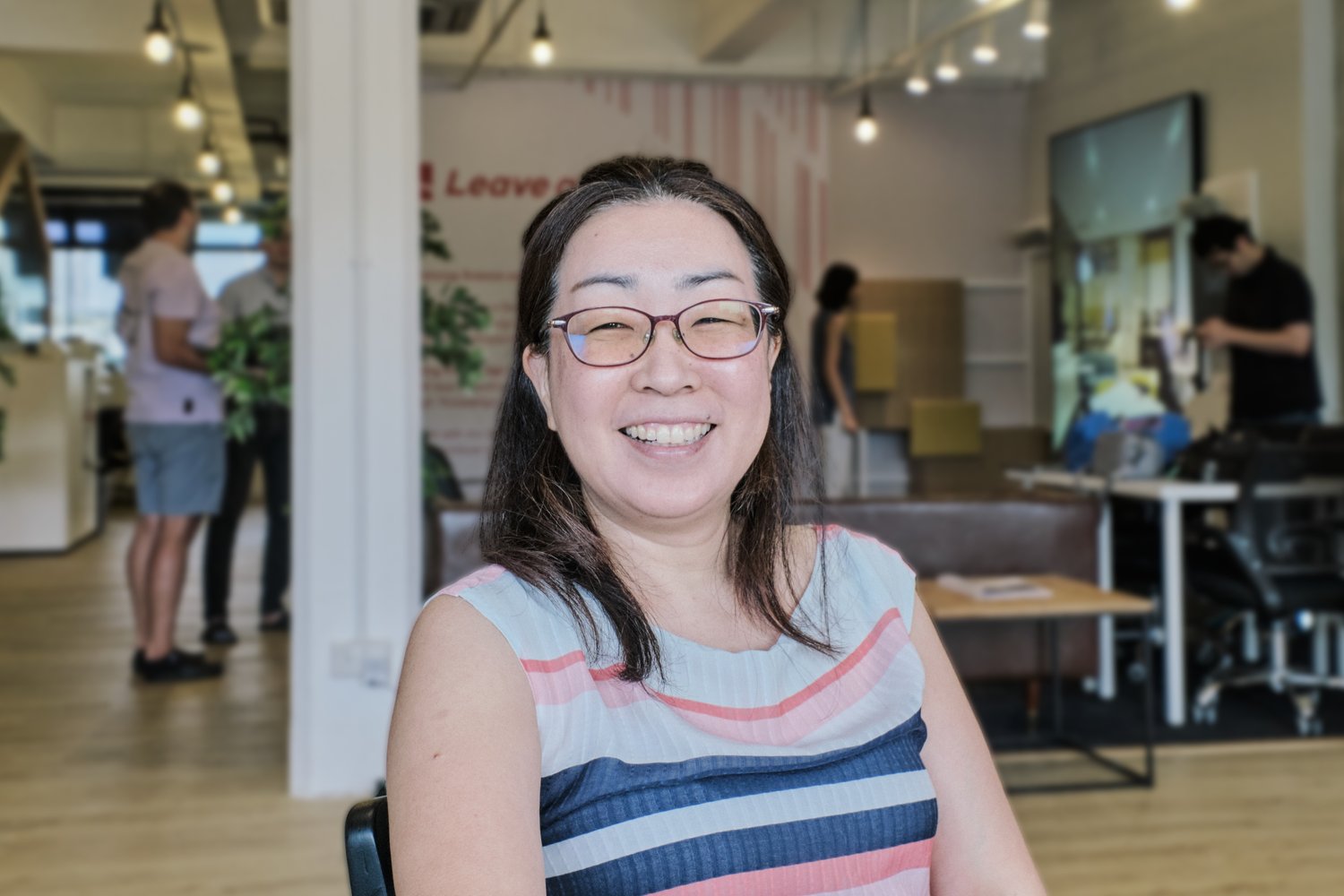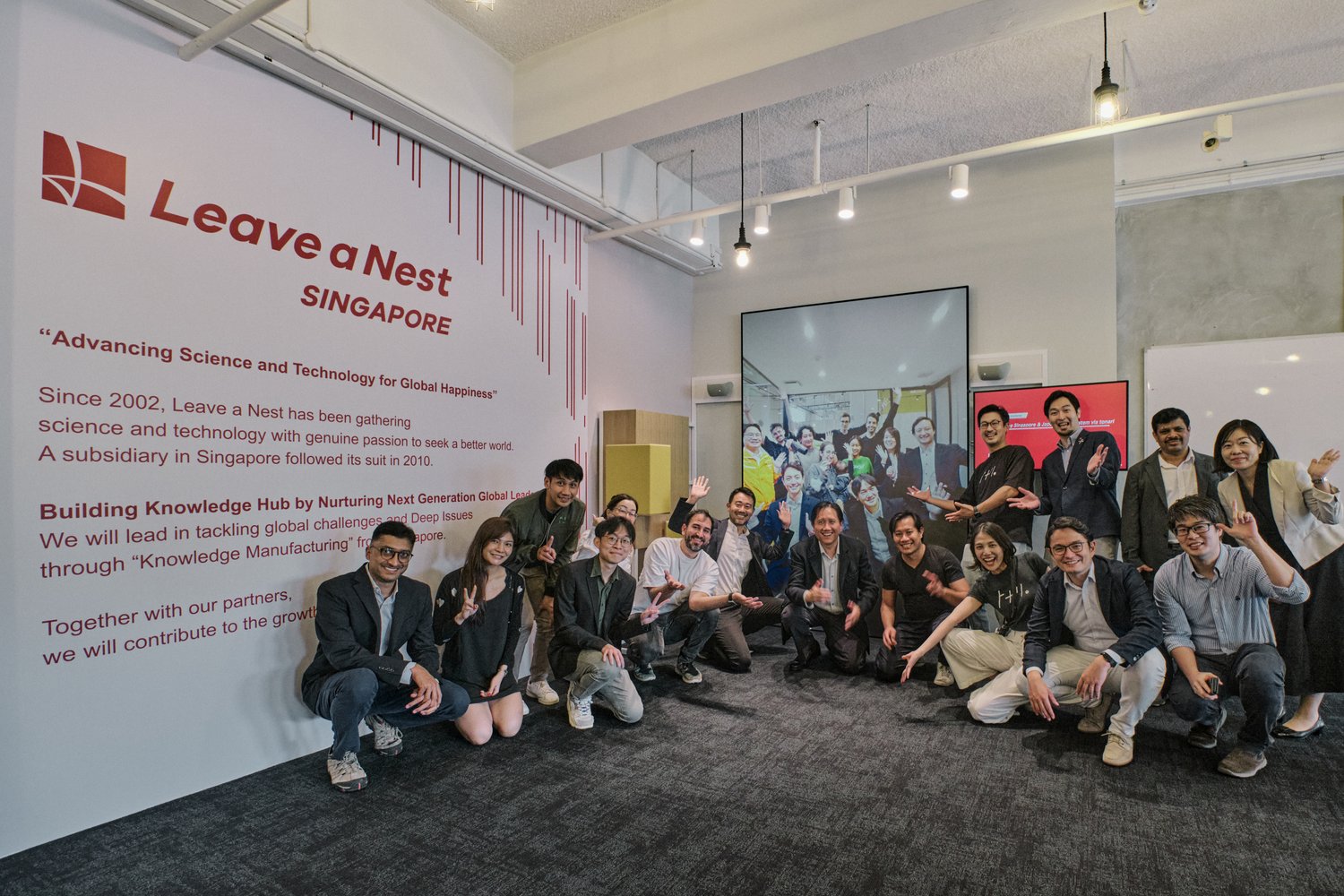Since 2019, the Leave a Nest Group has contributed to the support and exchange of startups between Singapore and Japan through a partnership with Enterprise Singapore, a Singapore government agency. As tonari’s first international use case, we connected two co-working spaces across Singapore's BLOCK71 and Tokyo's Center of Garage.
Challenges and achievements
- Leave a Nest and their partners have been growing across Japan and Singapore while feeling the hardships of being internationally distributed. Building strong ties between people and companies often requires frequent face-to-face interactions; yet international business trips were both costly and time-consuming
- tonari enables borderless face-to-face communication without travel time, costs, or disruption. Leave a Nest now provides a space for meetings and community building for partners, start-ups and researchers across Singapore and Japan
Making cross-border face-to-face communication possible
tonari has eliminated the need for eight-hour trips between Tokyo and Singapore, reducing travel time & costs and creating an environment where companies, ventures, and researchers from different countries feel as if they are meeting in person, enabling close communication even when apart.
Being here, I feel Japan and Singapore are closer than ever before — just like we’re in the same room. It’s like having a “dokodemo door”, a childhood dream finally come true through advanced technology. We set up tonari here because we want to create a hotspot for deep tech startups. Through the use of tonari, we want to further accelerate collaboration and connect the ecosystems between Japanese and Singaporean startups. Akitaka Wilhelm Fuji, President, Real Tech Holdings
Building better partnerships through trust

Face-to-face communication between partners enhances "psychological safety" and strengthens trust, leading to better partnerships.
The moment I sat down, I recalled the world depicted in a science fiction book I read as a child. I think it’s really wonderful how that world has now been brought to life. Most successful partnerships begin with a relationship of mutual trust. Yet, words and speech can only communicate 5% of what we wish to convey. Trust is something that we convey through our entire body. Moving forward, even as we expect more Japanese companies to land in Singapore, and because of new technology like tonari’s, the communications can become much smoother. Edwin Chow, Assistant Chief Executive Officer, Enterprise Singapore
Connecting global startups with Japanese “town factories”
Leave a Nest, which has been promoting support for manufacturing between Japanese town factories and overseas startups, is taking on the challenge of implementing international projects and building partnerships through tonari.
Hamano Products, which provides a service called "Garage-Sumida" that carries out design, prototype development, and mass production from the idea and planning stage based in town factories, has been holding meetings with Singaporean startup companies through COG's tonari.
With tonari, we can understand the atmosphere on the other side, which is hard to grasp in web meetings, and understand the relationships, roles, and key people involved. This has significant benefits for project progress and sales activities. This is our second meeting with a Singaporean company, but there is hardly any difference compared to face-to-face meetings. We often use paper materials and samples, so it's nice to be able to talk while pointing at monitors and actual prototypes. Noguchi-san, Sales Department, Hamano Products Co., Ltd.
An open and approachable design
At Center of Garage in Tokyo, tonari is installed in an acoustically sealed glass room within a larger common space, for easy access among co-working members and visitors. Large glass walls ensure visibility and a sense of openness, while still allowing for private face-to-face meetings when the doors are closed.

At BLOCK71 in Singapore, tonari is installed in the offices of Leave a Nest Singapore, which also operates as a co-working space for the startups and researchers in their community. Thanks of its smaller size, no glass partitions were necessary; instead, private meetings can be accommodated through a shared booking calendar.
Their space was designed to be open and approachable for numerous international companies and communities, while also supporting private meetings when needed. Furniture across the spaces was selected to be flexible to accommodate a variety of uses and group sizes, creating a space with a sense of comfort and intimacy for deeper conversations.
Fostering educational exchange between Japan and Singapore, and igniting curiosity in younger generations

When I first heard about tonari, I was skeptical about how “united” it would feel. After experiencing it, my mind changed. I’ve been working here at Leave a Nest Singapore for 12 years and I want to share that I feel physically close to Tokyo without flying! I can meet people in Tokyo now. This is very important when thinking about innovation, because when you “meet” great people that’s the moment when you can actually make things happen. Sharing exciting moments can bring many things to the world, and I hope that through tonari, we can create an exchange of education and knowledge between Japan and Singapore that will also spark the curiosity of the younger generation. Dr. Kihoko Tokue, President, Leave a Nest Singapore
About Leave a Nest
The Leave a Nest Group has been developing the "TECH PLANTER" deep-tech venture scouting and nurturing ecosystem in Japan and Southeast Asia since 2014. It has since developed into a major platform overlooking ASEAN6 (Singapore, Malaysia, Philippines, Thailand, Indonesia, and Vietnam). So far, they have found and nurtured 1,858 domestic and 1,147 overseas entrepreneurs. By working together with numerous researchers and companies to find solutions, they aim to advance science and technology and for global happiness.
Similar use cases
- Frontier Consulting, Fostering Culture as One Team Creating an environment that breaks down barriers between headquarters and branch offices to foster a sense of unity
- JR East, Managing Projects at the Frontline Connecting distributed teams across headquarters and development sites to share ideas for city planning

